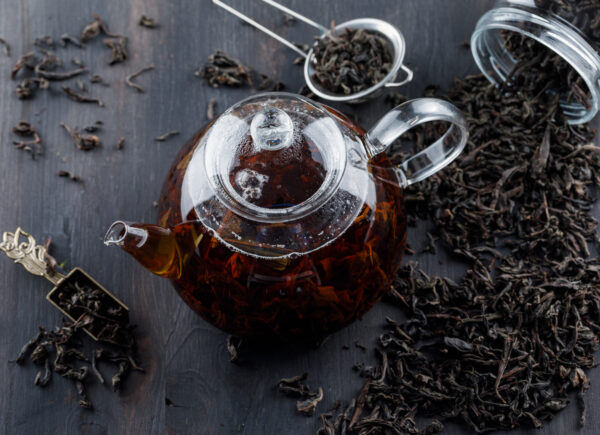
Black tea, with its bold and invigorating flavor, has long been a favorite among tea enthusiasts around the world. Whether enjoyed as a comforting morning ritual or a soothing afternoon pick-me-up, black tea offers a depth of flavor and a range of health benefits that make it truly exceptional. Let’s delve into the world of black tea, exploring its flavor profiles, origins, and the myriad ways it can benefit your health.

Flavor: Black tea is prized for its robust and full-bodied flavor, which can vary widely depending on the variety and region of cultivation. It often has a malty and sweet undertone, with hints of fruitiness or floral notes. The flavor is achieved through a process known as oxidation, which gives black tea its distinctive color and taste.
Origin: Black tea is most commonly associated with regions such as India, Sri Lanka, and Africa, where it has been cultivated for centuries. In India, Assam and Darjeeling are renowned for their distinctive black teas, each with its own unique flavor profile and character. Sri Lanka, formerly known as Ceylon, is another major producer of black tea, known for its bright and brisk flavors. Africa, particularly Kenya and Tanzania, also produces a significant amount of black tea, known for its bold and robust flavors.

Health Benefits: Black tea is not just a flavorful beverage; it also offers a range of health benefits. It is rich in antioxidants, particularly theaflavins and thearubigins, which have been linked to a reduced risk of heart disease and improved gut health. Additionally, black tea contains caffeine, which can help improve focus, alertness, and overall mental function.
Black tea is a beverage that offers both flavor and substance. Whether you prefer it bold and robust or sweet and fruity, there is a black tea out there to suit your taste. So, the next time you brew a cup of tea, consider reaching for a rich and flavorful black tea – your taste buds and your health will thank you.
